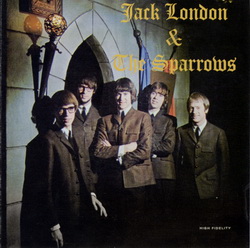
- Format: MP3

WWW.MZA-GARAGE.BLOGSPOT.COM
Jack London & the Sparrows' self-titled debut was one of the earliest albums in Canada (and indeed, one of the earlier albums in all of North America) to bear a heavy British Invasion influence, coming out in the spring of 1965. The British Invasion influence started, indeed, with the name of the artist, Jack London having changed his name from Dave Marden. Still, Jack London & the Sparrows was a bit on the tepid and wimpy side of the early British Invasion sound, with some dolorous melodrama in songs like "Our Love Has Passed" (which did make the Canadian Top Ten). "If You Don't Want My Love," their biggest Canadian hit, opts for the more energetic side of early Merseybeat in its brisk perkiness, though "Sparrows and Daisies" and "Give My Love to Sally," by contrast, go more toward the Peter & Gordon/Chad & Jeremy end of things. In all, the material (also including a couple of other Canadian Top 20 singles with "I'll Be the Boy" and "Give My Love to Sally") makes Jack London & the Sparrows sound like a minor-league 1963-1964 Liverpool band with some similarities to Gerry & the Pacemakers and the Searchers, though they seem more obviously imitative than either of those groups. It's passably catchy, innocuous stuff, but a little on the undeveloped side. Though Nick St. Nicholas is credited as the bassist and Jerry Edmonton as drummer, there's no hint of the heavy approach of Steppenwolf, the hit band they'd later join (who'd have a smash with "Born to Be Wild," written by guitarist Dennis Edmonton, by then known as Mars Bonfire).